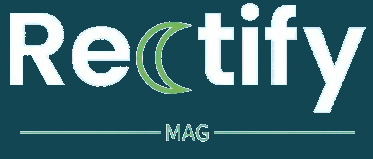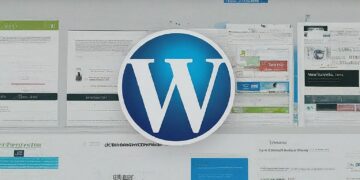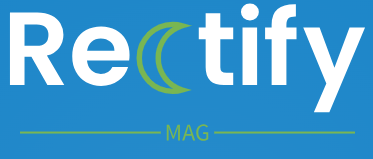The landscape of better education is rapidly evolving, pushed by way of technological advancements, converting societal desires, and the global nature of our global nowadays. Universities, long considered bastions of traditional studying, are at the leading edge of these changes, adapting to put together students for a destiny that looks massively specific from the past. This article explores key trends and innovations shaping the destiny of better training in universities.
Technological advancements
Technology is revolutionizing training, offering new ways to decorate studying and coaching. Digital and augmented fact gear are providing immersive studying stories, permitting students to discover complex subjects in ways that were previously not possible. As an instance, scientific college students can now perform digital dissections, and history students can clearly stroll thru historical cities.
Artificial intelligence (AI) is also gambling a great function. AI-driven systems can personalize studying reports, adapt to college students’ mastering paces, and provide real-time remarks. This individualized method helps cater to diverse studying patterns and desires, making education greater inclusive.
On-line getting to know and MOOCs
The upward thrust of on-line getting to know and big Open online guides (MOOCs) has democratized get admission to to training. Universities are more and more presenting on-line ranges and certifications, breaking down geographical boundaries and making higher training handy to a international target audience. This pliability allows running specialists to upskill without sacrificing their careers and offers students from remote areas access to international-class schooling.
The future of higher education in universities is being shaped by a variety of transformative trends and innovations. Key developments include:
- Technological Advancements: Integrating virtual reality, augmented reality, and AI-driven platforms to enhance learning experiences.
- Online Learning and MOOCs: Increasing access to education through online degrees and Massive Open Online Courses, making learning more flexible and global.
- Blended Learning Models: Combining online and traditional classroom instruction to cater to diverse learning preferences.
- Focus on Lifelong Learning: Offering continuous education opportunities like professional development courses and micro-credentials.
- Global Collaboration and Exchange: Promoting international partnerships and cultural exchange programs to provide a global perspective.
- Emphasis on Soft Skills and Interdisciplinary Learning: Integrating critical thinking, communication, and interdisciplinary approaches into curricula.
- Sustainable and Ethical Education: Prioritizing courses and practices that emphasize sustainability and ethical considerations.
These innovations are not only making education more accessible and personalized but also preparing students to navigate and thrive in an increasingly complex and interconnected world.
Mixed studying models
Mixed mastering, which mixes on-line and face-to-face guidance, is turning into the brand new norm. This model leverages the strengths of both strategies: the power and accessibility of online getting to know with the personalized interaction and hands-on reviews of conventional lecture room settings. This hybrid technique caters to various student needs and learning choices, improving universal instructional effects.
Awareness on Lifelong mastering
In a unexpectedly converting job marketplace, the idea of lifelong gaining knowledge of is gaining prominence. Universities are moving from a model of 1-time education to offering continuous gaining knowledge of opportunities all through an individual’s career. This includes professional improvement publications, micro-credentials, and quick-time period applications designed to preserve skills relevant in a dynamic activity market.
Worldwide Collaboration and change
Globalization has made international collaboration more important than ever. Top Universities are forming partnerships with institutions global, facilitating student and college exchanges, joint studies tasks, and international school rooms. Those collaborations foster move-cultural information and offer college students with a international perspective, that is important in today’s interconnected global.
Emphasis on soft abilities and Interdisciplinary studying
Even as technical competencies remain critical, there’s a growing emphasis on smooth abilities inclusive of essential thinking, verbal exchange, and teamwork. Universities are integrating these talents into their curricula to prepare college students for the complexities of modern places of work. Moreover, interdisciplinary gaining knowledge of is gaining traction, encouraging students to draw connections between different fields and fostering revolutionary wondering.
Sustainable and ethical schooling
Universities are increasingly more focusing on sustainability and ethical issues in their curricula and operations. Guides on environmental technological know-how, sustainable development, and ethics are becoming general, reflecting a commitment to generating graduates who aren’t only skilled specialists however also accountable global citizens.
FAQs: The Future of Higher Education in Universities
Q1: How is technology changing higher education?
- A1: Technology is transforming higher education through tools like virtual and augmented reality, which provide immersive learning experiences, and AI-driven platforms that offer personalized learning and real-time feedback. These advancements are making education more engaging and accessible.
Q2: What are MOOCs and how do they impact universities?
- A2: Massive Open Online Courses (MOOCs) are online courses available to a large number of participants. They democratize education by allowing anyone with internet access to take courses from top universities, thereby expanding the reach and impact of higher education.
Q3: What is blended learning, and why is it important?
- A3: Blended learning combines online and face-to-face instruction, leveraging the benefits of both approaches. This model provides flexibility for students while maintaining the valuable personal interactions and hands-on experiences of traditional classrooms, catering to diverse learning needs.
Q4: Why is lifelong learning becoming more important?
- A4: The job market is rapidly evolving, and skills can become obsolete quickly. Lifelong learning ensures that individuals can continuously update their skills and knowledge throughout their careers, staying relevant and competitive in their fields.
Q5: How are universities fostering global collaboration?
- A5: Universities are forming international partnerships for student and faculty exchanges, joint research projects, and global classrooms. These collaborations enhance cross-cultural understanding and provide students with a broader, global perspective on their studies.
Q6: What is the role of soft skills in modern education?
- A6: Soft skills such as critical thinking, communication, and teamwork are crucial for success in the modern workplace. Universities are increasingly integrating these skills into their curricula to prepare students for complex, interdisciplinary problem-solving in their careers.
Q7: How are universities addressing sustainability and ethical considerations?
- A7: Universities are incorporating sustainability and ethics into their curricula and operations. This includes offering courses on environmental science and sustainable development, as well as adopting sustainable practices on campus, to produce responsible global citizens.
Q8: What is the future of traditional university campuses with the rise of online education?
- A8: While online education is growing, traditional university campuses continue to play a vital role in providing social, cultural, and hands-on learning experiences. The future is likely to see a blend of both, with campuses incorporating more technology and flexible learning models.
Q9: How can students benefit from interdisciplinary learning?
- A9: Interdisciplinary learning encourages students to draw connections between different fields, fostering innovative thinking and problem-solving skills. This approach prepares students to tackle complex, real-world issues that require knowledge from multiple disciplines.
Q10: What initiatives are universities implementing to support mental health?
- A10: Universities are increasing mental health support through services like counseling, wellness programs, and mental health awareness campaigns. These initiatives aim to create a supportive environment that promotes the well-being of students.
Conclusion
The future of better schooling in universities is dynamic and exciting, characterized with the aid of innovation and a commitment to meeting the needs of a converting world. As universities maintain to include new technologies, flexible getting to know fashions, and international collaboration, they’re higher geared up to put together college students for the challenges and opportunities of the future. The transformation in higher schooling isn’t always just about adapting to exchange however about leading it, ensuring that universities continue to be essential centers of getting to know and improvement within the 21st century.



































